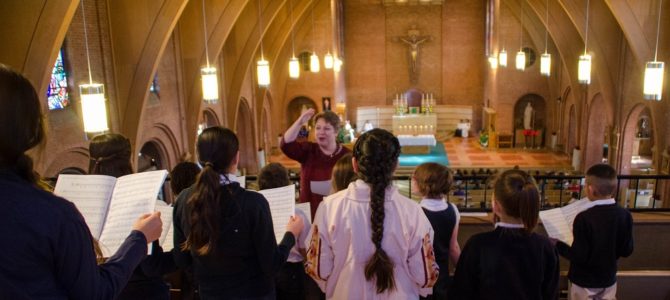The Supreme Court’s decision in Our Lady of Guadalupe School v. Morrisey-Berru protecting religious schools’ ability to make decisions about who carries their faith to the next generation was supported by a 7-2 decision, a supermajority of the justices. Does that supermajority reflect the American people’s support for this constitutional protection, often referred to as “the ministerial exception”? Do the American people understand this lesser-known legal doctrine?
If you were to scroll through your Twitter feed on the day of the decision, you might have received an inaccurate reading of Americans’ views on the subject. But, based on the results of a nationally representative survey of 1,004 American adults, most Americans not only support the ministerial exception and see it as a commonsense application of separation of church and state, but they also have a surprising degree of understanding about the principles behind the doctrine.
The survey found that more than two-thirds of American adults agree that keeping the government out of religious organizations’ internal disputes is an “important facet of separation of church and state.” This opinion was not limited to religious or conservative respondents. Sixty-five percent of the “nones” and 60 percent of those who indicated that religion was not important in their lives shared this view.
In the court’s opinion, Justice Samuel Alito wrote that “judicial intervention into disputes between the school and the teacher threatens the schools’ independence in a way that the First Amendment does not allow,” and Americans agree.
When given the choice of who should have the final say when disputes arise over who teaches the faith to the next generation, more respondents said that decision should lie with the religious organization than all other options combined. That view held true whether the respondent was Democrat, Independent, or Republican.
Not only did Americans support the idea of the ministerial exception, but they also seemed to know more about the principles at its core than one might expect. Where other studies have found that people generally struggle with basic questions about American government, respondents were able to correctly answer an average of three out of four true or false fact questions regarding the ministerial exception.
Interestingly, those who answered incorrectly on the factual questions were also more likely, controlling for other factors, to side with the government than religious organizations on some of the opinion questions.
Just as the Supreme Court was not ideologically split on protecting religious organizations’ rights to carry their faith to the next generation, the American people seem to find a commonsense fit for this decision in their understanding of a healthy separation of church and state. The court’s decision in Our Lady of Guadalupe School is one that a strong majority of Americans can agree with for its protections of religious organizations and its reading of our Constitution.









